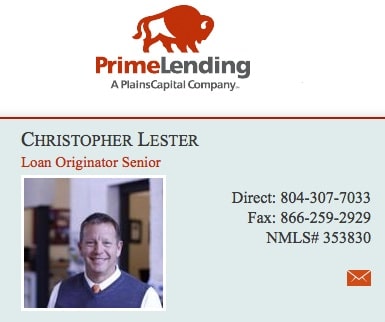
There is a lot of information behind a rate quote.
Rates + Costs = Quote
Lenders can offer multiple quotes on the same product with the variables being costs. Think along the lines of “how much do you want to pay today to get the lower rate for the life of the loan?” Lower rate quotes typically mean greater amounts due at closing. This is where the “fine print” comes into play as usually the information is not so “vividly” presented in the quote. Remember, if a company is competing on price (which is typical with internet rate quotes), in order to make the phone ring or get the customer to continue to the next screen, the company has to offer the lowest compared to competitors.
As mentioned previously, the base price may contain very little variance from one lender to the next. Closing costs paid at a loan settlement to obtain a lower rate are commonly known as “discount points”, or for short, “points”. Points are typically reflected as a percentage of the loan amount. For example, 2 points is the cash equal at the loan settlement of 2% of the loan amount. On a $200,000 loan, 2 points is $4,000 in additional cash at settlement.
Making Adjustments
Points on a mortgage may also reflect Loan Level Price Adjustments (LLPA’s). LLPA’s are risk based adjustments for credit score, debt-to-income ratios, and loan-to-value. Now check the fine print in the rate quote, and you will see what I mean. All rate quotes will show usually a loan amount, loan-to-value, estimated credit score, and debt-to-income ratio in the disclaimer. So for many, it can be very misleading to look at a “rate”. Most quotes will typically be reflective of the very top credit profile borrowers — those with 760 or higher credit scores, low debt-to-income ratios, and are putting 25% or more down on the purchase.
Assuming the lender is following Regulation Z and adhering to UDAAP regulations (UDAAP is a acronym for “Unfair, Deceptive, or Abusive Acts or Practices) pertaining to the marketing or mortgage information, there should be some visible fine print outlining the parameters the quote is based on. Even then, because quotes are never guaranteed due to fast markets, chasing a quote can be like chasing a cheetah on an African plain.
Loan Officer or Loan Quote, Which Matters More?

My advice, chasing a Loan Officer is a lot easier than chasing a quote. Trust me, they are easier to catch. To look for a good Loan Officer with a great reputation, you typically have to go no further than your realtor, your neighbor, your financial planner, your accountant or your co-worker. Reputable Loan Officers build their business on referral activity and they will have at their core convictions, honesty, integrity, customer satisfaction, and believe it or not, a good rate. The professional relationship is built on service, reputation, and trust. They are the true professionals at what they do. On the flip side, your sources might also be able to tell you who not to trust just as well.
